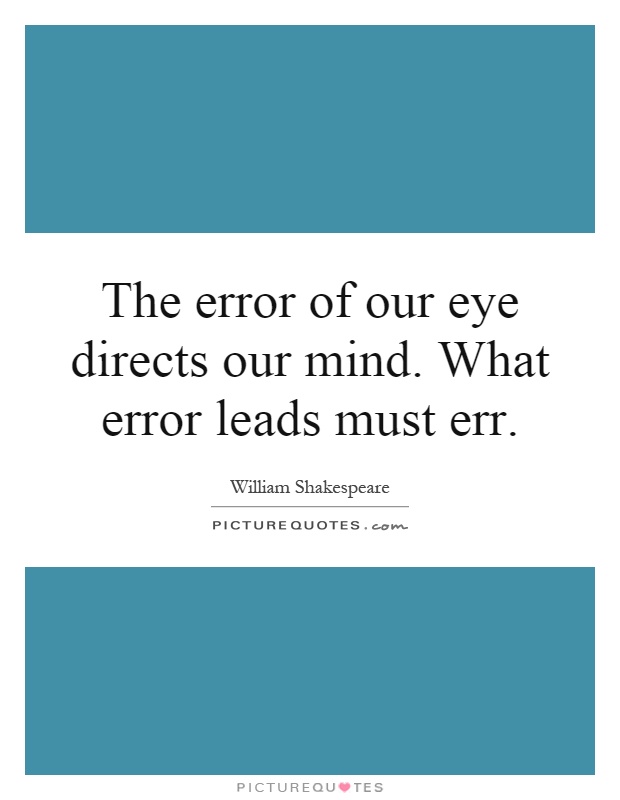The error of our eye directs our mind. What error leads must err

The error of our eye directs our mind. What error leads must err
In the context of William Shakespeare's works, the quote "The error of our eye directs our mind. What error leads must err" can be interpreted in various ways. Shakespeare often delved into the complexities of human nature and the fallibility of perception, making this quote particularly relevant to his themes.One interpretation of this quote is that our perception, or what we see with our eyes, can often lead us astray. Our minds are influenced by what we see, and if our eyes deceive us, then our thoughts and actions may also be misguided. This idea is prevalent in many of Shakespeare's plays, where characters are often deceived by appearances or misunderstandings.
For example, in "Othello," the titular character is led to believe that his wife, Desdemona, has been unfaithful based on false evidence presented to him. Othello's error in judgment is ultimately driven by what he sees and perceives, leading him to make tragic decisions that result in the downfall of both himself and those around him.
Similarly, in "Macbeth," the protagonist is driven to commit heinous acts based on the prophecies he hears and the visions he sees. His mind is directed by these errors, ultimately leading him down a path of destruction and despair.
The quote can also be interpreted as a commentary on the human tendency to make mistakes and err in judgment. Shakespeare often explored the consequences of human error in his plays, showing how even the most well-intentioned characters can be led astray by their own flaws and misjudgments.
Overall, in the context of William Shakespeare's works, the quote "The error of our eye directs our mind. What error leads must err" serves as a reminder of the fallibility of human perception and the potential consequences of being misled by what we see and believe. Shakespeare's exploration of these themes continues to resonate with audiences today, highlighting the timeless nature of his insights into the complexities of the human experience.












 Friendship Quotes
Friendship Quotes Love Quotes
Love Quotes Life Quotes
Life Quotes Funny Quotes
Funny Quotes Motivational Quotes
Motivational Quotes Inspirational Quotes
Inspirational Quotes